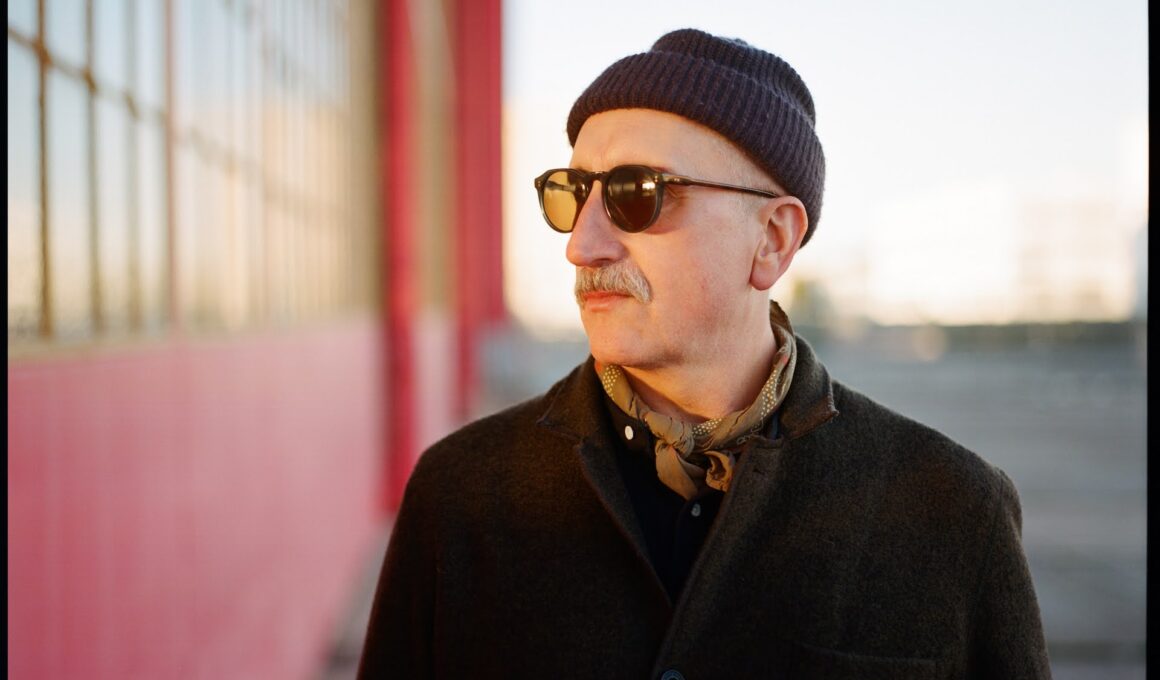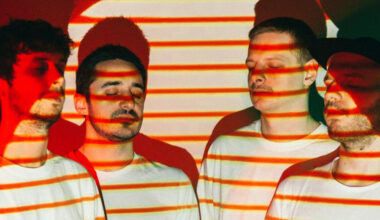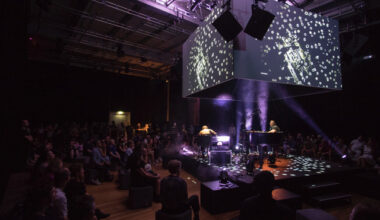Chuck Johnson is a California-based composer, producer, and musician. He approaches his work with an ear towards finding faults and instabilities that might reveal latent beauty, with a focus on pedal steel guitar, experimental electronics, alternate tuning systems, and composing for film and television. Recordings of his work have been published by VDSQ, Thrill Jockey, Temporary Residence, Kompakt and Ghostly, among others.
Johnson’s credits as a film composer include scores for the HBO film ‘Private Violence’ and the popular PBS shows ‘Somewhere South’ and ‘A Chef’s Life’. In 2009 he received an MFA in Electronic Music and Intermedia Art from Mills College, where he studied composition and electronic music with the likes of Pauline Oliveros and Maggi Payne.
FACTS
1. I didn’t learn to play guitar (my main instrument) until I was at university.
2. Although I’ve been composing for film and television since the early 2000s, Music from Burden of Proof is my first commercially available soundtrack album.
3. My great-great uncle Hobson Pittman was a 20th century American painter who taught at Pennsylvania Academy of the Fine Arts when David Lynch was a student there in the 1960s.
1. What is the biggest inspiration for your music?
I enjoy working with the materiality of sound and the challenge of communicating with it.
2. How and when did you get into making music?
I visited a piano dealer’s booth at the North Carolina State Fair when I was very young and somehow convinced my mother to buy one. We had limited means, so it was a big deal! I began taking lessons and have had access to some kind of musical instrument ever since.
3. What are 5 of your favourite albums of all time?
Choose any five:
Éliane Radigue – Trilogie de la Mort
John Coltrane – Ascension
Hamza El Din – The Waterwheel
The Cure – Disintegration
The Field – From Here We Go Sublime
Catherine Christer Hennix – The Electric Harpsichord
Brian Eno – Apollo: Atmospheres and Soundtracks
Codeine – Frigid Stars
The Byrds – Sweetheart of the Rodeo
Pauline Oliveros – Accordion and Voice
Slint – Spiderland
Harold Budd – The White Arcades
Vishwa Mohan Bhatt – Guitar a La Hindustan
David Bowie – Hunky Dory
Buck Owens – I’ve Got a Tiger by the Tail
Tony Conrad and Faust – Outside the Dream Syndicate
Miles Davis – Get Up With It
4. What do you associate with Berlin?
It’s one of my favorite cities to walk in! These days my main association with Berlin is that it’s a city that seems less German every time I visit. I also think it’s remarkable that West Berlin managed to exist so deep inside East Germany for half a century.
5. What’s your favourite place in your town?
The campus of Mills College (where I went to graduate school) is like a Shangri-La in the hills of Oakland, CA. And it has one of the best swimming pools in the Bay Area.
6. If there was no music in the world, what would you do instead?
It’s so hard to imagine such a world. I enjoy film photography, so hopefully that would exist! But if there was no such thing as music I would probably bang and scrape on things that make sound.
7. What was the last record/music you bought or listen?
If I Don’t See You in the Future, I’ll See You in the Pasture by Cole Pulice
8. Who would you most like to collaborate with?
I recently recorded with a drummer for the first time in years, which made me feel a little nostalgic for my days playing underground rock in the 1990s. And there is one band from that era who really inspired me by returning from a 20+ year hiatus in 2017 and making what may be my favorite record of theirs: Slowdive. I have a lot of respect for them, and I know their drummer Simon and he is a lovely person. I think they would be fun to collaborate with.
9. What was your best gig (as performer or spectator)?
I had an experimental duo with my Mills colleague Suzanne Thorpe and we opened for My Bloody Valentine in 2008. This gig stands out simply because we had access to their massive sound system and we created extreme low frequencies for about 6,000 people. I don’t know how enjoyable it was for the audience but Suzanne and I felt VERY powerful.
10. How important is technology to your creative process?
I cycle in and out of making technology-centered work. These days I am moving back into such a cycle, and revisiting some ideas I was working on when I studied electronic music in grad school. But even when my work has been focused on acoustic instruments, recording and distributing the music is always an objective – which of course can’t happen without technology.
11. Please tell us what it was like to work on a soundtrack.
Iive been fortunate to compose for film and television since the early 2000s. Every project is different, but my most recent scoring project was the HBO series Burden of Proof. The subject of the film is the disappearance of a teenage girl in 1987 and the aftermath on her family and friends. But it was a unique project because as the film was being made new developments in the case changed the story several times, even after we thought we had nearly finished and were in the final stages. So it kept us all on our toes, and the project ended up being a very long and complicated journey.


